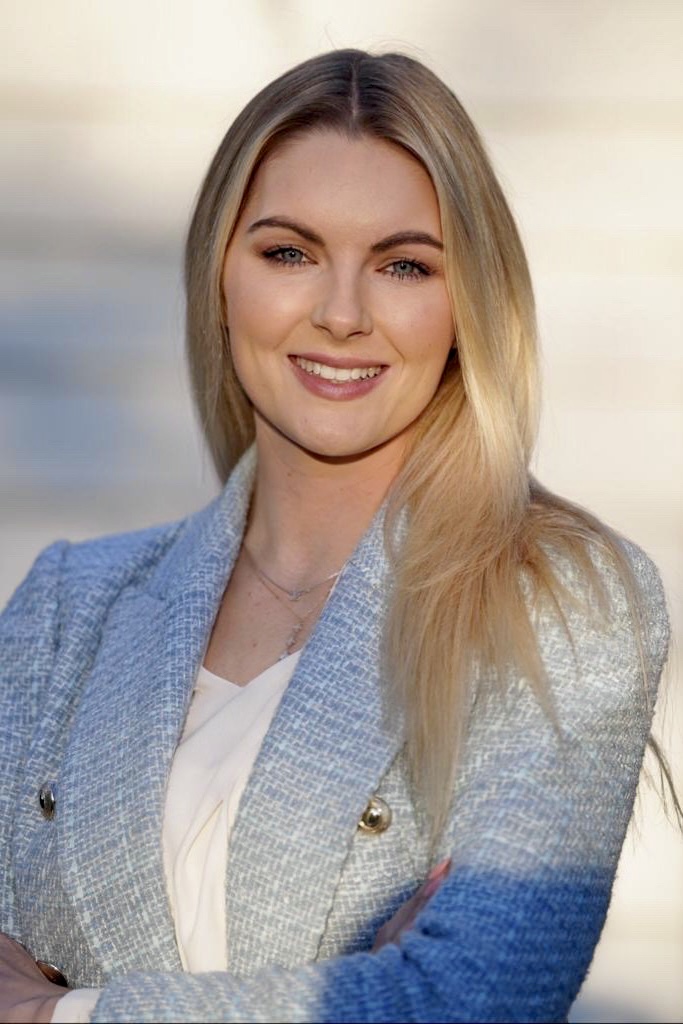John Freund's Posts
3724 ArticlesLawdragon Publishes 100 Global Leaders in Litigation Finance for 2024
- Louis Young, co-founder & CEO, Augusta Ventures
- Stuart Grant, co-founder & managing director, Bench Walk Advisors
- Andy Lundberg, managing director, Burford Capital
Russian Billionaires Evading Sanctions by Funding Cases in UK & US
Westfleet Publishes 2023 Litigation Finance Market Report
- $15.2B in assets under management for 2023, representing a small increase from $15.1B in 2022
- $2.7B in new commitments to deals in 2023, down from £3.2B in 2022
- The average deal size declined from $8.6M in 2022 to $7.8M in 2023
- This was driven by a reduction in the average size of portfolio deals from $10.5M in 2022 to $9.9M in 2023
- In contrast the average size of single-matter transactions increased from $4.3M in 2022 to $4.8M in 2023
- The share of new capital dedicated to claim monetization reached 21% in 2023, continuing the upward trend from 14% in 2022 and 8% in 2021
Nick Rowles-Davies Shares Thoughts on a Post-PACCAR World
Subpostmaster’s Lawyer Calls on SRA to Examine Legal Costs in Post Office Litigation
Illinois Court Grants Burford and Sysco’s Request to Substitute Plaintiff in Poultry Antitrust Litigation

Litigation Finance Firm Invests €25 million into Spanish Legal Tech Business
Litigation Funding Bill Introduced in House of Lords

Mass Tort Industry Leader Nicholas D’Aquilla Joins Counsel Financial
In a strategic move to bolster its litigation finance and loan servicing capabilities, Counsel Financial welcomes Nicholas (Nick) D’Aquilla, Esq. as its new Managing Director. With over a decade of experience in the mass tort industry and as a former civil defense litigator for the Louisiana Department of Justice, D’Aquilla brings a wealth of knowledge and a proven track record of success to the Counsel Financial leadership team.
D’Aquilla has distinguished himself as a leading figure in administering complex settlements, contributing to the administration of more than $20 billion in mass tort settlements across many high-profile cases. His expertise in solution design and oversight services has contributed to the resolution of more than 40 mass tort and class action litigations, spanning environmental, pharmaceutical, medical device, and sexual assault matters.
D'Aquilla will focus on enhancing Counsel Financial's mass tort underwriting processes and loan servicing offering, enhancing the development of valuation models based on historical settlement data. He will also leverage his experience as a consultant for multiple legal technology companies to help drive continued refinement of the company's servicing platform.
“Adding Nick to our team marks a significant enhancement of our litigation finance and loan servicing offerings,” said Paul Cody, President & CEO of Counsel Financial. “Coupling our team’s 200+ years of legal, financial and litigation experience with Nick’s knowledge and insight into the mass tort sector provides unparalleled resources that can be leveraged by both our law firm clients and institutional investors utilizing our servicing platform.”
Before joining Counsel Financial, D’Aquilla played a pivotal role in a complex settlement fund advisory team for a national bank, where he developed innovative underwriting methodologies that enabled credit extensions to mass tort plaintiffs’ firms. There, he also analyzed and valued over $1.5 billion in loan collateral derived from mass tort dockets.
About Counsel Financial
Counsel Financial is an industry leader in originating, underwriting and servicing loans and other financing solutions for contingent fee law firms. For over two decades, Counsel Financial has provided more than $2 billion in capital investments across 300+ law firms. These investments have financed the growth of firms in every area of plaintiffs’ litigation, including personal injury, mass torts, class action and labor and employment.

Highlights from Brown Rudnick’s Litigation Funding Conference 2024

Legal Finance Firm Set to Reboot Industry with Multi-Million Pound Investment in AI-Tech.
It previously announced the creation of 10 new jobs in key areas including legal, auditing, finance and origination, after opening a new office in Weert, Netherlands. Aisling added: “I take immense pride in witnessing the remarkable growth of Nera Capital as it expands worldwide.
“In the face of a rapidly evolving world, our industry has often been considered slow to adapt in relative terms. We are determined to break free from that inertia and lead the charge towards meaningful change. By embracing cutting-edge AI technology, we have entered a transformative chapter for our firm. The fusion of innovation and data-driven insights empowers us to navigate legal landscapes with even greater efficiency, ensuring our partnered law firms receive the swift and insightful solutions they deserve which can hopefully speed up the justice process for those that need it.”
Nera Capital are expected to look at further expansion into new locations in the near future.
About Nera Capital
- Established in 2011, Nera Capital is a specialist funding provider to law firms.
- Provides Law Firm Lend funding across diverse claim portfolios in both the Consumer and Commercial sector.
- Headquartered in Dublin, the firm also has offices in Manchester and The Netherlands.
- www.neracapital.com

Zachary Segal Joins LCM as an Investment Manager

DELTA CAPITAL PARTNERS WELCOMES ACCOMPLISHED PRIVATE EQUITY FUND PROFESSIONAL AS CHIEF FINANCIAL OFFICER

DELTA CAPITAL PARTNERS WELCOMES ESTEEMED PRIVATE EQUITY AND ASSET MANAGEMENT PROFESSIONAL TO ITS BOARD OF ADVISORS
Analyzing the Potential Impact of Florida’s Litigation Funding Bill

Burford Capital Reports Record 2023 Results
CAT Continues to Send Revised Funding Agreements to the Court of Appeal
Delaware District Judge Rules in Favour of Woodsford Subsidiary in Dispute with Hosie Rice
High Court Judge Rules that Anonymous Funder’s Identity is Relevant in Webster v HMRC

Dane Lund Joins Juris Capital as Managing Director
Quantum Data Analysis Meets Litigation Finance and Investment

LegalPay Awarded the Best LegalTech Startup of the Year by Entrepreneur India at Tech and Innovation Summit 2024
LegalPay, India's leading litigation finance company, has been named the BEST LEGALTECH STARTUP OF THE YEAR by Entrepreneur India at the prestigious Tech and Innovation Summit 2024. This recognition underscores LegalPay's unwavering commitment to revolutionizing the legal finance landscape and empowering businesses with innovative solutions.
LegalPay tackles the chronic issue of delayed payments faced by businesses. Their groundbreaking financing solution, QuickSettle, offers a lifeline to thousands of businesses struggling with cash flow. QuickSettle provides immediate funding to creditors, allowing them to receive their dues upfront. Simultaneously, debtors benefit from flexible repayment plans, easing financial strain and facilitating a win-win outcome for all parties involved.
"In today's dynamic economic climate, access to flexible financing solutions is vital for businesses to thrive," says Mr. Kundan Shahi, Founder & CEO of LegalPay. "We are incredibly honored to be recognized by Entrepreneur India. This award is a testament to our steadfast dedication to pushing the boundaries of innovation in the legal finance industry. We remain committed to empowering businesses and fostering a culture of faster dispute resolution in India."
LegalPay’s innovation transcends traditional boundaries. By bridging the gap between creditors and debtors, QuickSettle fosters collaboration and trust, reducing the need for costly litigation. In today’s dynamic business landscape, access to working capital is paramount. QuickSettle liberates working capital, allowing businesses to focus on growth and expansion.
The recognition from Entrepreneur India serves as a testament to LegalPay's dedication to pushing the boundaries of innovation in the legal and financial technology sector. As businesses continue to seek efficient and sustainable solutions to recover their dues, LegalPay remains steadfast in its mission to empower businesses and drive positive change in the industry.
About LegalPay:
Founded in 2019 by Kundan Shahi, LegalPay has emerged as India's largest litigation funding company, currently managing over USD 400 Million worth of claims. Through innovative solutions like QuickSettle, LegalPay empowers businesses to navigate financial hurdles seamlessly and unlock their true potential.
Industry Reacts to UK Government’s Announcement of Legislation to Reverse PACCAR Ruling
$18 Million Settlement Agreed in Merivale Underpayment Class Action
Ontario Court Approves Funding Arrangements in Class Actions Targeting Canadian Banks
Proposed Litigation Funding Disclosure Rule Rejected by Supreme Court Of New Jersey’s Civil Practice Committee

Counsel Financial Announces $25M Equity Transaction and Launch of New Loan Servicing Business
Burford Capital Hires Judgement Enforcement and Foreign Asset Recovery Expert



